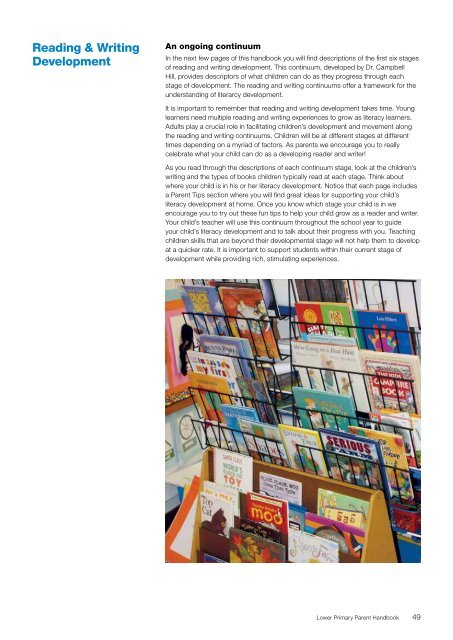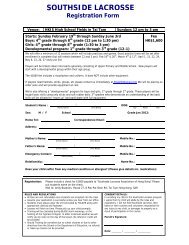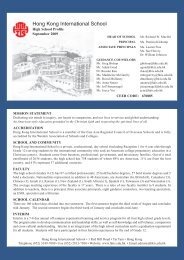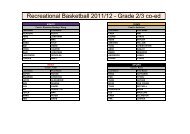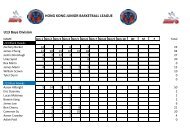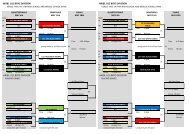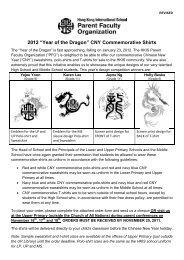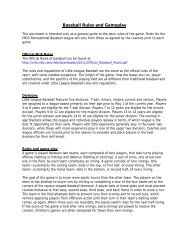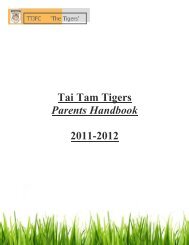Lower Primary School Parent Handbook - DragonNet - Hong Kong ...
Lower Primary School Parent Handbook - DragonNet - Hong Kong ...
Lower Primary School Parent Handbook - DragonNet - Hong Kong ...
You also want an ePaper? Increase the reach of your titles
YUMPU automatically turns print PDFs into web optimized ePapers that Google loves.
Reading & Writing<br />
Development<br />
An ongoing continuum<br />
In the next few pages of this handbook you will find descriptions of the first six stages<br />
of reading and writing development. This continuum, developed by Dr. Campbell<br />
Hill, provides descriptors of what children can do as they progress through each<br />
stage of development. The reading and writing continuums offer a framework for the<br />
understanding of literarcy development.<br />
It is important to remember that reading and writing development takes time. Young<br />
learners need multiple reading and writing experiences to grow as literacy learners.<br />
Adults play a crucial role in facilitating children’s development and movement along<br />
the reading and writing continuums. Children will be at different stages at different<br />
times depending on a myriad of factors. As parents we encourage you to really<br />
celebrate what your child can do as a developing reader and writer!<br />
As you read through the descriptions of each continuum stage, look at the children’s<br />
writing and the types of books children typically read at each stage. Think about<br />
where your child is in his or her literacy development. Notice that each page includes<br />
a <strong>Parent</strong> Tips section where you will find great ideas for supporting your child’s<br />
literacy development at home. Once you know which stage your child is in we<br />
encourage you to try out these fun tips to help your child grow as a reader and writer.<br />
Your child’s teacher will use this continuum throughout the school year to guide<br />
your child’s literacy development and to talk about their progress with you. Teaching<br />
children skills that are beyond their developmental stage will not help them to develop<br />
at a quicker rate. It is important to support students within their current stage of<br />
development while providing rich, stimulating experiences.<br />
<strong>Lower</strong> <strong>Primary</strong> <strong>Parent</strong> <strong>Handbook</strong> 49


